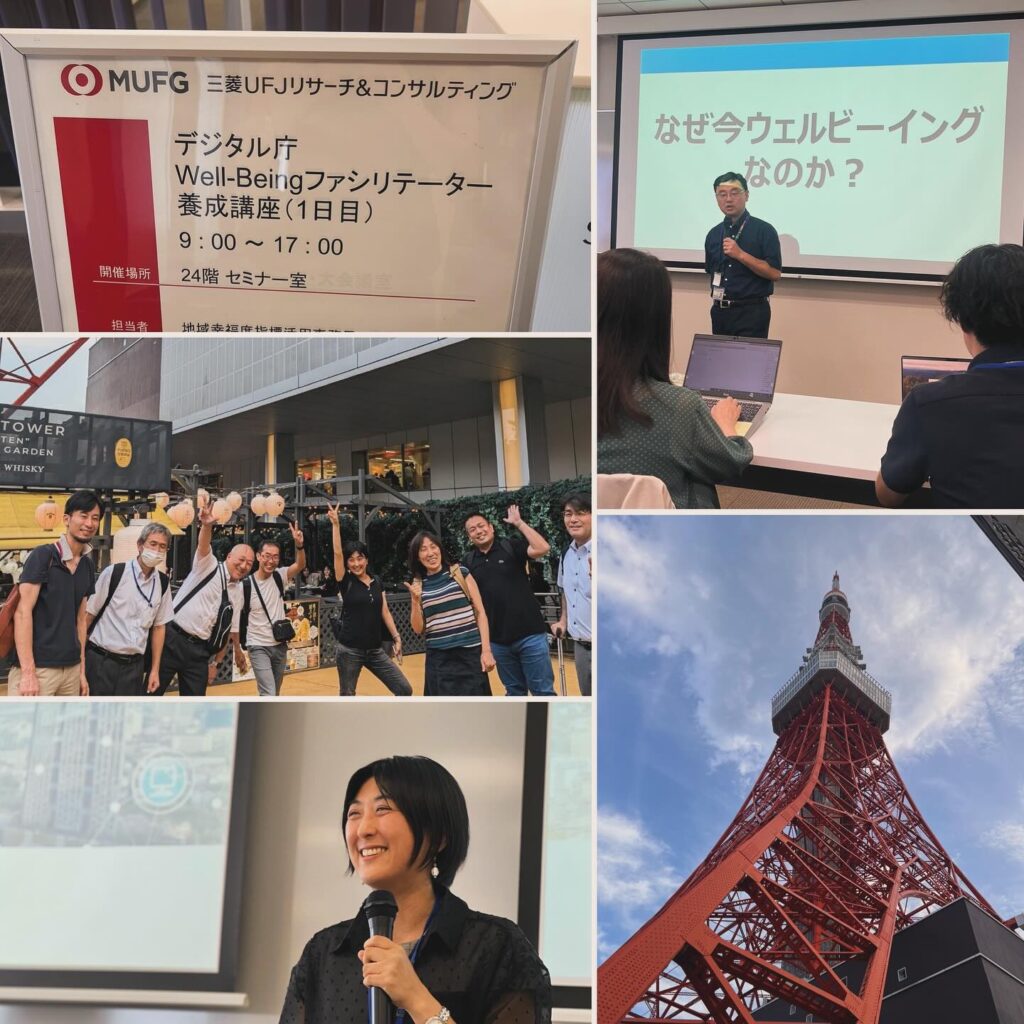日本で最初の【デジタル庁認定Well-beingファシリテーター】になりました!
日本は経済的な豊かさが一定の段階を超え、心の安寧やウェルビーイングを意識して求めることが必要とされる時代になりました。
世界幸福度ランキングで日本は51位、OECDでは41カ国中30位。日本の順位が低い理由には、人生の選択自由度が低いこと、他者への寛容性、政府への信頼、ジェンダーなどが挙げられます。
今回開発された「地域幸福度指標」(ウェルビーイング指標)は、日本ならではのウェルビーイングの因子について学び、各自治体ならではの強みや特徴を見出していくことで、幸福度や生活満足度を上げていく取り組みです。
ウェルビーイングに基づく政策形成の取り組みを日本全国に一気に広げていくために、デジタル庁主催の2日間の研修を経て、60名のデジタル庁認定Well-beingファシリテーターが生まれました。これから全国各地でウェルビーイングの伝達が始まります。
その街の幸せがどんな因子から構成されているのか、また数年後のわが街は、どういった街であることが望ましいのか、ということを考える人が増えていけば、その街の個性が見出され、幸せな循環が始まって、日本が元気になっていくと信じています。
I became one of the first [Digital Agency Certified Well-being Facilitator] in Japan!
Japan has passed a certain stage of economic affluence and is now in an era where people need to consciously seek peace of mind and wellbeing.
In the World Happiness Rankings, Japan ranks 51st, and 30th out of 41 countries in the OECD. Reasons for Japan’s low ranking include low freedom of choice in life, tolerance of others, trust in government, gender, and government.
The newly developed “Regional Well-Being Index” is an initiative to increase happiness and life satisfaction by learning about factors of wellbeing unique to Japan and discovering the strengths and characteristics unique to each municipality.
In order to spread the wellbeing-based policy formation initiative throughout Japan at once, 60 Well-being Facilitators have been created through a two-day training course hosted by the Digital Agency.
The facilitators will now begin to transmit the information throughout the country.
I believe that if more and more people think about what factors make up the happiness of a city and what kind of city we want our city to be in a few years’ time, a cycle of happiness will begin, the individuality of the city will be discovered, and Japan will be revitalized.


